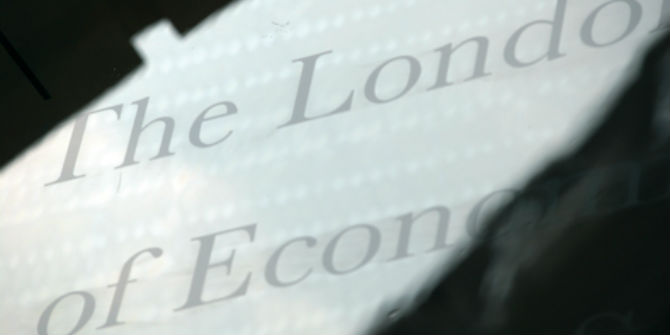It is with great sadness that we report that Colin Howson, the former Chair of Philosophy of Science at LSE and a member of the Department for 40 years, has passed away.
Colin Howson died at the age of 74 on 5 January 2020. He had suffered for a short time the effects of an irremediable brain tumour. In his book Objecting to God (2011 CUP), Colin had argued passionately and with logical precision against those who, on religious and other grounds, oppose “the principle of self-determination,” that is to say, the right under certain circumstances to determine one’s own end. When he discovered, towards the end of 2019, that his condition was both aggressive and untreatable, he was able, as a permanent resident of Canada, to exercise this right himself – since physician-assisted euthanasia is legal in that country.
Colin was born in London but as a boy he moved with his parents and his older sister, Stella, to Devon, where he attended Colyton Grammar School, becoming head boy there. In 1963 he enrolled as a student at the London School of Economics, first in the Economics Department then, at the end of his first year, switching to the Department of Philosophy, Logic and Scientific Method, where he was offered a lectureship just one year after completing his undergraduate degree, and shortly after beginning his doctoral studies. From that time until his death a long succession of influential papers on philosophy, mathematical logic and probability theory followed and led to him becoming acknowledged as a foremost authority in these areas, with a formidable international reputation.
Though a student and a teacher in an academic department dominated by the philosophical ideas of its founder, Sir Karl Popper, ideas that were continued and developed by Popper’s charismatic successor Imre Lakatos, Howson was immune to their popular appeal; he was his own man, and he developed a diametrically opposite course.
In 1973, in a paper published in the British Journal for the Philosophy of Science, he showed that the supposed proof of the proposition that lawlike generalisations necessarily have zero probability, whatever evidence may appear to favour them – a central plank of Popper’s ‘Falsificationist’ philosophy – lacked force, as it tacitly relied on a question-begging assumption. This opened the way to his pursuing an alternative course, one that legitimised the assignment of nonzero probabilities to scientific theories and the revision of those probabilities by empirical evidence via a central theorem of probability that had been proved in the 18th Century by Revd Thomas Bayes. Bayesian inductive reasoning, which before the 20th Century was fairly standard, had not just dropped out of fashion but had fallen into obloquy, and few and brave were its defenders.
But the 1990s saw signs of a radical turnaround, so that today Bayesian methodology is treated with renewed respect by philosophers and is increasingly influential amongst statisticians and scientists, notably medical epidemiologists. Colin contributed to this revival through his exposition of the axioms of probability as laws of consistency and rational discourse, comparable, as he showed, to the laws of deductive logic; his book (with Peter Urbach) Scientific Reasoning: the Bayesian Approach (Open Court), which went through three editions between 1989 and 2005, is widely cited and is considered the canonical philosophical defence of Bayesian reasoning.
Colin’s book Hume’s Problem: Induction and the Justification of Belief (2000, OUP) addressed David Hume’s famous demonstration that logic cannot justify our natural tendency to take past empirical observations as a guide to what we may observe in the future; the fact that this is exactly what scientists and indeed all of us regularly do is the classic ‘Problem of Induction.’ Howson again drew on Bayesian, probabilistic philosophy to provide what is now widely recognised as a persuasive solution to that problem.
In his final book, referred to earlier, Colin applied his logical expertise against what he saw as the illogic and obscurantism in much religious discourse. One characteristic remark is this: “There is a profound moral issue in the elevation of faith over evidence. Impartial evidence is the defence of honest people against imposters and frauds.”
In 1997, Colin was appointed Professor of Logic at LSE. He was President of the British Society for the Philosophy of Science from 2003 to 2005. On his retirement from LSE in 2008, he accepted a position in the Department of Philosophy at the University of Toronto, where he joined his Canadian wife, Margaret Morrison, also a distinguished philosopher of science. After he retired for a second time in 2014, they spent an increasing amount of time at their home in Nice.
Colin had an immense charm, a razor-sharp mind, exceptional intelligence, open-mindedness and an ever-inventive wit. His many successful doctoral students remember him as an encouraging mentor. And for many colleagues and for his collaborators he was a wise and a good friend.
Colin Howson was born in London on 4 June 1945 and died in Toronto on 5 January 2020. He married, first, the economist Susan Howson, née Finlay, in 1967 (the marriage dissolved in 1974); and in 2003 he married Margaret (‘Margie’) Morrison, who survives him.




Connect with us
Facebook
Twitter
Youtube
Flickr